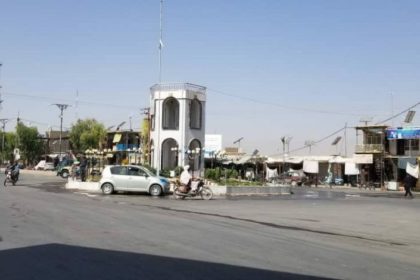RASC News Agency: The European Union has inaugurated the fourth edition of its European Humanitarian Forum in Brussels, with the deteriorating crisis in Afghanistan occupying a central position on the agenda. According to a statement from the EU Delegation in Kabul, this high-level forum taking place from Monday, May 19, through Tuesday, May 20 is aimed at identifying long-term, sustainable, and innovative solutions to Afghanistan’s spiraling humanitarian catastrophe. It also seeks to enhance regional cooperation in addressing the root causes of the crisis. The forum, co-hosted by the European Commission and the Republic of Poland currently holding the rotating presidency of the Council of the EU has been convened amid mounting international concern over Afghanistan’s rapid descent into socio-economic despair. The EU’s official communique emphasizes that the core objective of the gathering is to generate actionable, effective strategies to alleviate the suffering of millions trapped under the Taliban’s repressive regime.
Even as diplomats and humanitarian leaders convene in Brussels, the situation on the ground in Afghanistan grows increasingly dire. International humanitarian organizations including the World Food Programme (WFP) have issued urgent warnings about the compounded threats of economic collapse, food insecurity, and the shrinking of humanitarian space under Taliban restrictions. Funding shortages have dramatically curtailed relief operations, leaving millions without access to basic necessities such as food, shelter, and medical care. Recent data paints a grim picture: more than three million Afghanistani citizens are in urgent need of life-saving food assistance. Yet, due to a severe shortfall in international funding, aid agencies estimate they will only be able to reach one million of those in need leaving two million vulnerable people to face hunger and malnutrition alone. The gap between what is needed and what is available grows more perilous with each passing day.
During a recent visit to Afghanistan, Tom Fletcher, the United Nations Deputy Secretary-General for Humanitarian Affairs, issued a sobering warning. He cautioned that the drastic reduction in humanitarian aid not only endangers lives but risks precipitating an even broader collapse of Afghanistan’s fragile humanitarian infrastructure. Fletcher underscored that without an urgent scale-up in support, thousands could face irreversible harm especially children, women, and displaced families. This crisis, however, is not a natural disaster it is a man-made tragedy fueled by the Taliban’s deliberate and oppressive policies. The regime’s systematic obstruction of humanitarian operations, its ban on women working with aid organizations, and its complete disregard for international human rights standards have crippled the ability of global agencies to operate effectively. Under Taliban rule, Afghanistan has become not only politically isolated but also functionally inaccessible to the very institutions trying to save lives.
While the Brussels forum offers a vital platform for diplomatic engagement and humanitarian strategy, there remains a glaring challenge: any lasting solution must confront the reality that the Taliban are the principal architects of Afghanistan’s suffering. Their ideological rigidity and hostility toward international norms continue to sabotage recovery efforts and endanger the lives of millions. Simply put, humanitarian aid alone cannot fix a crisis perpetuated by a regime that rules through repression, fear, and exclusion. The international community now faces a critical moral and strategic test. The decisions made in Brussels must move beyond declarations and pledges; they must translate into tangible pressure on the Taliban, bold financial commitments, and innovative mechanisms to bypass the regime’s blockade of aid. Without such action, forums like this risk becoming hollow rituals, offering sympathy without salvation.
Afghanistan’s humanitarian emergency is not merely a regional concern it is a global indictment. And the failure to act decisively against the Taliban’s destructive governance will not only cost Afghanistani lives it will erode the credibility of international commitments to human rights and humanitarian responsibility everywhere.






